This March marks the anniversaries of two events which might have led one to think that free speech was in decline in Britain: the passing of the Scottish Hate Crime Act and the Batley Grammar case of 2021. To these may now have to be added a third, subject to further developments: the Colchester case (see below).
These events have involved the suppression or attempted suppression of freedom of speech in the interests of protecting its supposed victims against harm. They represent worrying steps along the path of appeasement by the authorities of vocal special interest groups, who use the language of offence to prevent their ideas being challenged.
The Scottish Hate Crime Act
On 11th March 2021, the Hate Crime and Public Order (Scotland) Bill was passed by the Scottish Parliament; it received Royal Assent on 23rd April. On the positive side, the Act abolished the common law offence of blasphemy. However, in Part 3, it also created a number of offences of ‘stirring up hatred’ against ‘a group of persons’ on the grounds of a list of protected characteristics, including age, disability, religion or perceived religious affiliation, sexual orientation, transgender identity, and variations in sex characteristics.
After a campaign from the National Secular Society and other organisations, a clause was included (9(b)) that gave greater leeway to ‘discussion or criticism relating to, or expressions of antipathy, dislike, ridicule or insult towards’ religion. However, in regard to the other characteristics, while ‘discussion or criticism’ were included, ‘antipathy’ and the rest were not.
Several objections were made to the ‘stirring up’ offences at the time. Liam Kerr MSP, who was on the Justice Committee that scrutinised the Bill during its passage through Parliament, criticised it for the ‘chilling effect’ it was likely to bring to freedom of expression, to the point where the country would ‘end up in a situation where people are almost self-policing.’ The Act also omits the defence, found in English law, that the person making the speech was inside a private dwelling.
In February 2021 in England, the Merseyside police had driven around with a sign saying ‘Being Offensive is an Offence’ as ‘part of a campaign to encourage people to report hate crime’ (according to the BBC), before they were forced to apologise, because being offensive is not actually an offence under English law – not yet. However, the slogan seems to epitomise the spirit of the Scottish Hate Crime Act, if not its wording, only too well: that the range of what counts as criminal speech is to be wider than ever before.
It is due precisely to this ambitious scope that the Act appears to have been difficult to implement. At the end of March 2022, it has still not been brought into force. As reported in February by Scotland’s Daily Record, the Shadow Justice Secretary, Jamie Greene MSP, claimed that ‘preparing for this bill has put overwhelming strain on our police’. A report by Police Scotland said that the Act would require ‘training, guidance and communications planning’.
When Liam Kerr was contacted by the Freethinker for this article, he replied that he maintained ‘the same view’ of the Act as before. Asked why he thought the Scottish Government had not yet implemented it, he said that although he could not speak for them, it might merely be a question of their ‘getting round to process’ rather than because they had had second thoughts about it. (Humza Yousaf, the Justice Secretary when the Bill was passed, and Keith Brown, the current Justice Secretary, did not respond to requests for comment.)
It can only be hoped that the Act contains the seeds of its own undoing, and that the sweeping scope of its ‘stirring up’ offences continues to make it impossible to implement.
Blasphemy in Batley
On 25th March 2021, the BBC reported that an angry mob of protesters had gathered at the gates of Batley Grammar School, Yorkshire, to protest the use of cartoons depicting Mohammed by an RS teacher in the course of a lesson. The headmaster, Gary Kibble, issued a grovelling apology and suspended the teacher pending an independent investigation. The teacher was later exonerated of deliberate wrongdoing. However, the executive summary of the investigation suggests that the cartoons or similarly ‘offensive’ material will never be taught in Batley again.
The precise details of the teacher’s ‘offence of being offensive’, as it were, only started to emerge gradually; a full account of the story has never been published.
The characteristic reponse to the situation by politicians on both sides was to condemn the threats to the teacher but to make some sort of vague generalisations about what he actually did. The Department for Education, for instance, talked about balancing open debate of challenging issues against ‘the need to promote respect and tolerance between people of different faiths and beliefs’. The local Labour MP, Tracy Brabin, claimed to ‘welcome the school’s apology and recognition of the offence this has caused’, but emphasised both that ‘no teacher should be facing intimidation or threats’ and that there was a need for ‘conversations’ between all parties that could ‘proceed in a respectful and dignified matter (sic)’. In other words, neither side came out and explicitly defended the use of the cartoons.
The Batley case was widely written about in the media at the time. However, looking back on it now, the most striking feature is just how completely the voice of its protagonist, the RS teacher himself, was silenced. The media and political establishment suppressed his identity, purportedly in order to protect him and his family against the many threats that they received. Even if it was for his safety, though, there is something uncomfortable about the completeness with which he has disappeared from the record.
In a better functioning democracy, the teacher would have been given the opportunity to defend himself, and would not have risked his life in doing so. In an education system where open enquiry was valued above the fear of offending special interest groups, however aggressive or vocal, he would have had the support of his school and would not have lost his job.
Cartoons in Colchester
On 29-30 March 2022, the Gazette & Essex County Standard and Daily Mail reported that a teacher at Colchester Royal Grammar School had been suspended for, as the Gazette put it, ‘holding a coffee mug depicting Jesus Christ and the Prophet Muhammad’. The Mail reported that the image was taken from the ‘Jesus and Mo’ cartoon series by the pseudonymous cartoonist, Mohammed Jones.
The details have yet to be ascertained. Both papers have implied that the incident of the Jesus and Mo mug might be linked to allegations of sexual harassment previously made at the school, and a negative Ofsted report last year. According to the Gazette, it is understood that ‘the teacher is subject to an ongoing investigation’ – but what this refers to is mysterious. Earlier today (31 March), the Mail reported in an update that ‘witnesses have since claimed it [the mug] was regularly ‘shown off’ during lessons too.’
It may be that there are details of this case which would make the teacher’s use of the mug unattractive. However, unless and until these are substantiated, Porcus would like to know what basis there is for connecting other allegations against the teacher or the school to a cartoon on a mug. Or who decided to take a photo of it, and why, and how it reached the attention of the media.
Another question is why both the Mail and the Gazette have pixellated the cartoon out in their photos. According to the Mail, ‘In speech bubbles, the Jesus figure appears to say “Hey”, with the Prophet Muhammad figure responding: “How ya doin?”’ If this is accurate, then the cartoon would seem to be the one visible at the top of the Jesus and Mo homepage – which is literally as the Mail describes it. An image of an apparently similar mug has been shared here.
The Jesus and Mo series uses conversations between the title characters and others to satirise religion in general, and Christianity and Islam in particular, in a wry, caustic way. “There is no blasphemy law here in the UK, and depictions of long-dead prophets are not forbidden,” said the cartoonist, who spoke to Porcus on condition of anonymity. “In fact, it is impossible to create an image of the original Mohammed because nobody knows what he looked like. The Mo in Jesus & Mo is not anyone’s prophet. He’s mine, and I assert my right to depict him however I wish. I actually think that my Mo is far more likeable than the one depicted in Islamic scripture.”
Porcus is of the view that readers should be allowed to judge for themselves how ‘offensive’ the cartoon is. And whether it is so outrageous, so obscene, so grossly indecent that it should be censored by the media, and lead – apparently, at least – to the suspension of a teacher.
Readers might also think the response of the Mail strange; it is not a publication usually known for handling controversial topics with kid gloves. But perhaps there is another reason for the dramatic reactions of both papers and school: fear. The Batley teacher received death threats, and his home was visited by ‘gangs of young men’ not long after the story came out. In 2020, Samuel Paty was murdered in France for showing Mohammed cartoons in class; in 2015, a similar fate befell eight Charlie Hebdo journalists and four others with them.
[Ed. – Under the previous editor, the Freethinker regularly published Jesus and Mo cartoons. In the current climate, however, being a small operation, we have no faith in the ability or willingness of the UK authorities to ensure that our right to freedom of speech is defended against extremists. If other, better funded papers take the lead in publishing the cartoon involved, as they ought, we will follow.
Update, 23 February 2024: Despite our continuing lack of faith in the UK authorities, and despite the failure of the mainstream media to resist the pressure of regressive forces, since October 2022 we have started once again to publish the occasional Jesus and Mo cartoon, taking the view that free speech (within the bounds of the law and civilised behaviour), including irreverence and satire, is a precious liberty, and that there are times when it is necessary to stand up and be counted.]
Satire and Islam
Doubtless religious conservatives, as well as those on the authoritarian Left, would say that publishing cartoons of Mohammed is ‘really’ nothing but a provocation, or, ‘prima facie’, an attempt to ‘incit[e] hatred and Islamophobia whilst pushing forward extremist white supremacist ideology.’ The latter was how the Batley teacher’s use of the cartoons was described in an open letter that was organised by the Muslim Action Forum.
But that response would miss the point. The aim of cartoons like those of Jesus and Mo, or the ones published in Charlie Hebdo, is satire: to question, criticise, laugh at religion and other things. Satire is the tool of the dissenter against the conformist, the democrat against the dictator, the individual against the group. It mocks the reigning prejudices of the day, revealing their absurdity in the eyes of the writer or cartoonist; its effectiveness depends upon the extent to which it wins the reader over to its point of view. Satire is about persuasion – the opposite of force.
If cartoons featuring Mohammed cannot be displayed publicly in Britain without fear of institutional condemnation or violent reprisals, then we may not be so far off from becoming, like northern Nigeria, a place where Islam is beyond criticism and beyond laughter. Which raises another question: if it is Islam now, what will be next?




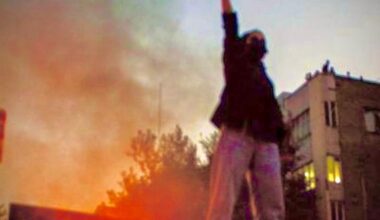
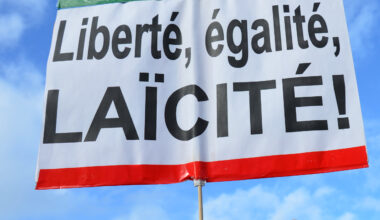
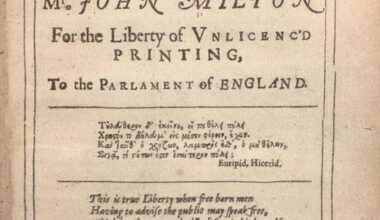

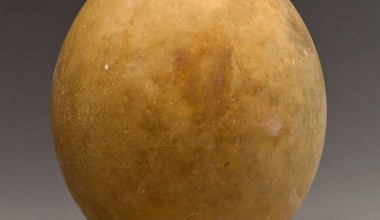
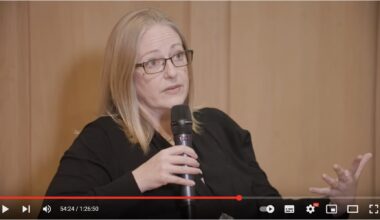
1 comment
Without free speech there can be no free thought. They are the lifeblood of liberal democracy as its enemies demonstrate daily.
Your email address will not be published. Comments are subject to our Community Guidelines. Required fields are marked *
Donate